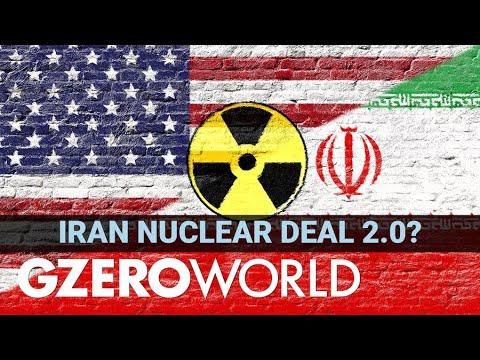March 28, 2022
Since taking office, the Biden administration has worked hard for the US to return to the 2015 Iran nuclear deal, which Donald Trump walked away from in 2018.
Now, reaching an agreement is more urgent than ever because the Iranians are closer to getting the bomb than they've ever been. But Russia's war in Ukraine has complicated things, and some fear that even if a deal happens, the US may withdraw again with a Republican president in 2025.
On this episode of GZERO World, Ian Bremmer speaks to Ali Vaez, Iran project director at the International Crisis Group, who says the odds of success in the short term are about 50/50. Still, he thinks the stakes have become too big to fail for both Iran, crippled by sanctions, and for the US — Biden will pay a political price if the Iranians go nuclear on his watch.
Vaez also digs into Israel's strategic interest in a deal the Israelis have long opposed, and Russia's role in the negotiations with Iran.
More on the war in Ukraine: can cold-calling ordinary Russians to talk about the invasion change their hearts and minds? We talk to an Ireland-based Ukrainian in charge of a project doing just that.
From Your Site Articles
- Iran nuclear deal now a toss-up, says International Crisis Group ... ›
- Can the nuclear deal with Iran still be salvaged? - GZERO Media ›
- The pros and cons of a nuclear program for Iran - GZERO Media ›
- The US can’t let Iran get any closer to nuclear weapons, says Iran expert Ali Vaez - GZERO Media ›
- The Iran nuclear deal - GZERO Media ›
- Trump tariff is starting a US-China trade war - GZERO Media ›
- Iran getting the bomb? Not as close as you might think - GZERO Media ›
- A new Iran nuclear deal is critical but not a sure thing, says Iran expert Ali Vaez - GZERO Media ›
- Why Israel now supports an Iran nuclear deal - GZERO Media ›
More For You
Michael Froman explains how the world is adjusting to Trump’s more transactional and unilateral approach to global power.
Most Popular
- YouTube
At the 2026 Munich Security Conference, NATO Parliamentary Secretary General Benedetta Berti explains why hybrid threats, from undersea cable sabotage to disinformation, energy coercion, and cyberattacks, are no longer isolated incidents but a defining feature of today’s security environment.
- YouTube
In this Quick Take from Munich, Ian Bremmer examines the state of the transatlantic alliance as the 62nd Munich Security Conference concludes.
- YouTube
At the 2026 Munich Security Conference, Brad Smith announces the launch of the Trusted Tech Alliance, a coalition of global technology leaders, including Microsoft, committing to secure cross-border tech flows, ethical governance, and stronger data protections.
© 2025 GZERO Media. All Rights Reserved | A Eurasia Group media company.
